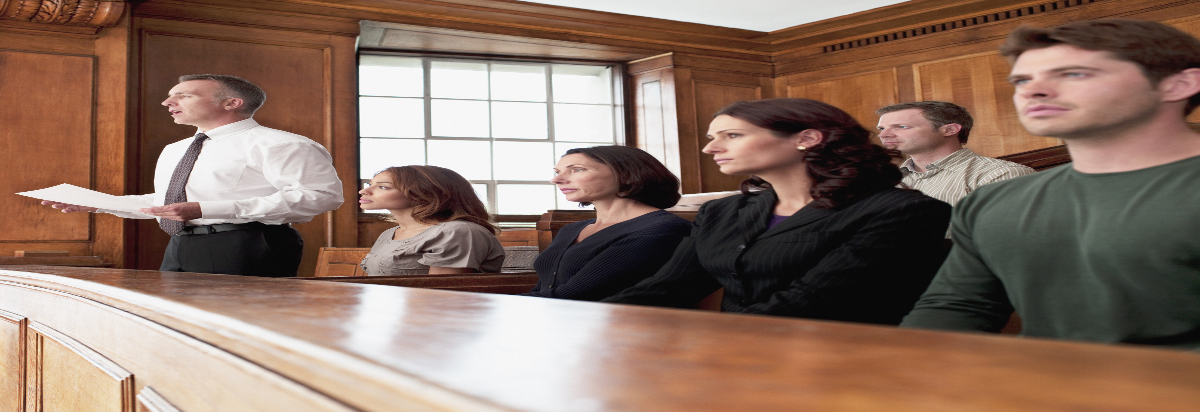
It can be frightening if you or a loved one have been charged with a crime. Countless thoughts can rush through your mind as you think about the next steps and what you can do to defend yourself from these accusations.
As you know, criminal charges are serious, but the United States Justice System is designed to protect the accused from punishment without a fair trial. While each case is different, the criminal trial process works to give every defendant a consistent pathway toward a resolution.
While this blog won’t provide a complete step-by-step guide to each stage of a criminal trial, we can tell you a few things you may want to know as the process unfolds. Remember, getting in touch with an experienced legal team as soon as possible is essential. Answering police questions without an attorney present is highly risky. Your attorney can walk you through the criminal trial process and provide information specific to your circumstances.
If you’re interested in finding a great criminal defense attorney, visit our contact page to learn more.
Stages of a Criminal Trial – 5 Things You Need to Know
#1 Many Criminal Cases Don’t Go to Trial
Like civil cases, many criminal cases are resolved outside of a courtroom. In a criminal case, the charges can be dropped at several points before the trial begins, or the defense can plead guilty to receive a lesser or more favorable punishment. According to the United States Courts, more than 90 percent of defendants plead guilty rather than go to trial. Finding an excellent lawyer to present the flaws in the prosecution’s case or negotiate for a lesser punishment is essential to making sure you get the very best outcome possible.
#2 Four Types of Pleas
An arraignment is the first formal presentation of charges to the defendant. According to the Missouri Attorney General’s Office, there are four pleas that the defendant can make after an arraignment:
- Guilty: The defendant admits to the crime as charged. This plea is usually made to reduce or make the punishment more favorable for the defendant.
- Not guilty: The defendant denies guilt of the charged crime. If this plea is made, a trial will follow.
- Not guilty by reason of insanity: This plea claims that the defendant was mentally disturbed or incapacitated at the time of the offense and that they didn’t intend to commit the crime. This leads to a trial to test whether or not the plea is true.
- Alford: An Alford plea is made when there is sufficient evidence to establish guilt, but the defendant does not admit guilt.
#3 The Prosecutor Has a Greater Burden of Proof Than a Plaintiff in a Civil Trial
In a criminal trial, the prosecuting party is the side of the case that accuses the defending party of the charges they have received. This parallels with the plaintiff in a civil trial who accuses a party of negligence.
However, a civil trial requires less proof, and fault can be comparative, meaning the plaintiff can be assigned some of the blame. In a criminal trial, a prosecutor must prove that the defense is completely and totally guilty. The proof must go “beyond a reasonable doubt” to affirm a criminal conviction, and the jury must be convinced of the defendant’s guilt to convict them.
#4 Criminal Cases Can Take Months to Over a Year to Resolve
The prosecution process can take a while to come to a decision. Misdemeanors can take several months to complete, and a felony charge can take more than a year to resolve. Often, this has to do with the defendant’s plea, the amount of evidence and number of witnesses available to testify, and if any problems with the case arise.
#5 Criminal Defense Lawyers Have Many Responsibilities in Your Case
Criminal defense lawyers don’t just represent you in the courtroom. Here are a few other ways they get involved in the case:
- They run a thorough investigation of your case.
- They negotiate with the prosecution on your behalf.
- They communicate with involved parties to manage your case effectively.
This is why getting an experienced and savvy lawyer is essential if you’ve been charged with a crime. They are your greatest advocate when you are dealing with a prosecution. A criminal record can be serious and can affect the rest of your life.
Don’t work with a cut-rate lawyer when you are in the midst of unfair prosecution. Contact Eng & Woods Attorneys at Law to get in touch with an experienced team who can handle a wide variety of cases.
By
Eng & Woods
|
Published
July 20, 2022
|
Posted in
Steve Smith
I like how you mentioned that having proper communication with your legal case service provider could help with the best planning. The other night, my friend told me that he was looking for a bondsman solution for his brother who was involved in a drug crime with his friends. He asked if I had any idea what would be the best legal approach to get him out of jail. I appreciate this enlightening legal guide article for proper legal solutions. I’ll tell him it will be much better if he consults a trusted bondsman service as they can provide legal assistance.